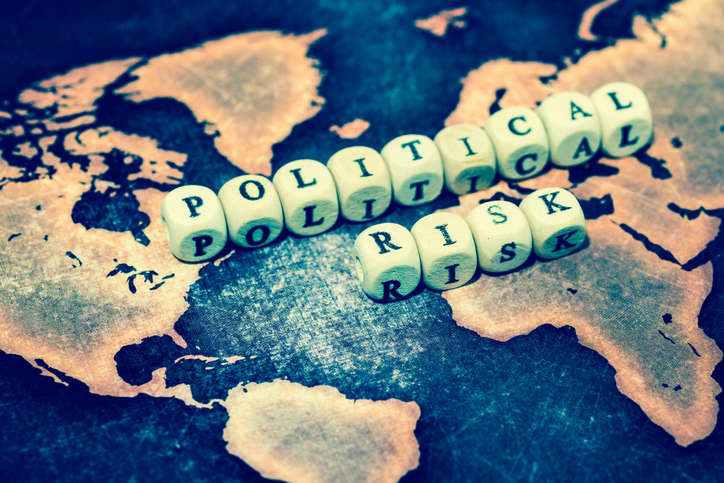The Risk of Political Violence: what is and is not covered

Authored by AXA XL Senior Underwriter – War, Terrorism, Political Violence, Francisco Arias
Across the Americas, civil unrest and politically motivated violence are becoming a more common concern for risk managers. The unpredictable nature of political violence puts business and property at risk, and although many organizations have political risk insurance policies, the coverage does not insure against politically motivated violent attacks and their aftermath.
No country is immune. As the US became embroiled in political turmoil in the last few years, other countries were seeing their own versions of protests, uprisings, and violent attacks.
Likewise in Peru, a large protest in 2020 to remove the president ended in violence, with two people dead. In Chile, ongoing protests began in 2019 over increased public transit fares, resulting in vandalism, arson, and damage to the infrastructure. In Colombia, over 60 people have died during anti-government protests opposing a proposed tax hike that grew into a massive protest against the president and his government. In Mexico, protesters clashed with police during a protest calling attention to crimes against women.
Violent acts stemming from politically motivated protests are not new, nor are they more prevalent in any one country. The instances of violence that occur vary based on the political climate as well as the economic and employment landscape. Strikes in Peru, anti-government rallies in Argentina, violent protests after a black man beaten to death in a Brazilian supermarket – the spectrum of political violence is broad and can be triggered in many ways.
So too are the increased terrorist attacks occurring in a number of Latin American countries. In 2011, a terrorist attack on a Mexican casino in Monterrey killed 52 people when terrorists, armed with gallons of gasoline, set the building on fire. The fire was attributed to a criminal syndicate. More recently, a 2017 terrorist bombing by an emerging rebel group in a Bogota, Colombia mall killed three people.
Political Risk versus Political Violence
For many organizations with operations in Latin America, the unpredictable nature of political violence puts business and property at risk. Many organizations already have political risk insurance policies. However, there is a definite distinction between political risk and political violence.
Political risk occurs when a government changes its policies or regulations in a way that significantly impacts a company’s ability to operate and make a profit. For example, if a government restricts importing or exporting, that could impact the ability to export goods or import materials.
Political violence are acts stemming from politically motivated protests, but also can mean sabotage, terrorism, civil war and malicious damage during the disturbance of the public peace. For example, university students protesting the imposition of student fees at the University of Puerto Rico in 2011 led to violent clashes between students and riot police. Anti-government protests, such as those that took place in Colombia in 2021 as protesters demanded an end to police repression and better public policies in response to the effects of the pandemic, are also forms of political violence.
Those are important distinctions, especially when it comes to insuring against these risks. Political risk policies will not cover acts of political violence. A fire started by insurrectionists that spreads to your factory is not considered a political risk, but an act of political violence.
Coverage for political violence, therefore, offers that missing protection. That is especially important if your US-headquartered company is operating in a part of Latin America in which anti-US sentiment is strong.
Covering a volatile landscape
Because such risks are difficult to predict, a Political Violence Insurance product can offer organizations protection from losses stemming from these exposures. In a volatile political environment, and even in locales where an inflammatory political decision disrupts an otherwise calm environment, political violence is a very real threat.
AXA XL’s Political Violence team provides coverage for property damage and business interruption for perils such as:
Sabotage & TerrorismStrikes, Riots, Civil Commotion, and Malicious DamageInsurrection, Rebellion, Mutiny, War and Civil War, Coup d’état
Also, our experts are located in the countries in which you do business. We understand the risks in your area and monitor the news and other trends to keep you informed of potential issues. We are able to respond quickly when there is an incident because we have become an integral part of the local community. We share the same interests with our clients – to bring our communities back to whole should a violent incident occur.
We offer insights into the future of political violence risks through our security firm SRM.
Our experts track policy pricing and trends in the US and other countries, which often foreshadows what Latin American countries will be experiencing. Our ability to create a framework around a volatile risk environment, and around the insurance that protects you, gives you critical information that helps you protect your business.
Plus, we deliver peace of mind. Should an act of political violence cause damage or disruption to your organization, the AXA XL Political Violence suite of products provides the financial support you need to get your business back on track.
Protection now and for the future
As political unrest and civil disorder continues to mount in Latin American countries, your risks to your business operations and your property increase, as well.
Politically motivated acts of violence will happen. What’s more, they can happen in nearly any country, depending on the circumstance and the economic factors involved.
Protecting your business from disruption or damage may not be possible physically, but a Political Violence insurance policy can help your business recover from unforeseen threats. Having protection in place can ensure that your business will get back up and running as soon as possible with as little disruption as possible.





